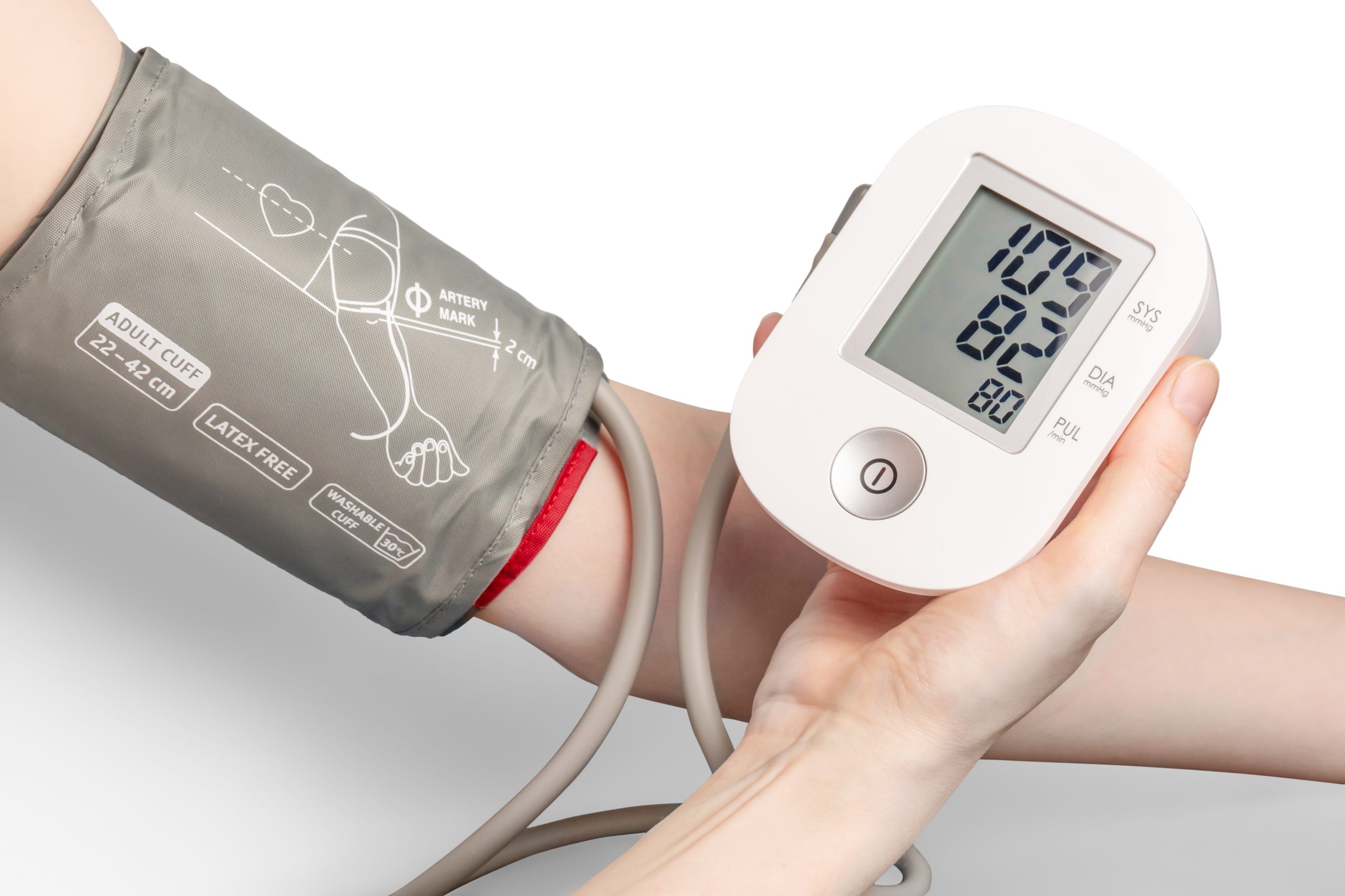If you’ve ever wondered about the potential effects of pea consumption on blood pressure, you’re not alone. Pea, specifically Palmitoylethanolamide (PEA), has been the subject of scientific interest for its therapeutic properties. Derived from soybean lecithin, PEA is a fatty acid amide that belongs to the family of endocannabinoids. With its ability to modulate the immune response and promote homeostasis, PEA is often hailed as a promising nutraceutical or dietary supplement. But does it have any impact on blood pressure? Let’s explore the fascinating connection between pea and blood pressure in this article.

What is Pea?
Definition of Pea
Pea, scientifically known as palmitoylethanolamide (PEA), is a naturally occurring fatty acid amide that belongs to the family of endocannabinoids. It was first discovered in the 1950s when it was isolated from soybean lecithin. Since then, it has garnered attention for its potential therapeutic properties.
PEA is synthesized in various tissues of the body, particularly in response to inflammation and pain. It is believed to play a crucial role in modulating the immune response and promoting homeostasis, or the body’s ability to maintain a stable internal environment.
Chemical Composition of Pea
Pea, or palmitoylethanolamide, is composed of a fatty acid known as palmitic acid and an ethanolamine molecule. This unique chemical composition gives PEA its beneficial properties and potential therapeutic effects.
Role of Pea in the Body
Pea plays a significant role in the body’s overall functioning, particularly in relation to inflammation, pain modulation, and immune response. As an endocannabinoid, it can bind to specific receptors in the body, such as the cannabinoid receptors CB1 and CB2, which are involved in various physiological processes.
By interacting with these receptors, Pea can help regulate inflammation, alleviate pain, and modulate the immune response. It is involved in maintaining homeostasis and promoting overall well-being.
Potential Therapeutic Properties of Pea
Anti-inflammatory Effects
One of the key therapeutic properties of Pea is its anti-inflammatory effects. Inflammation is a natural response of the body to protect itself against harmful stimuli. However, chronic inflammation can be detrimental and contribute to various chronic diseases.
Pea has been shown to have anti-inflammatory properties by inhibiting the activation of inflammatory cells and reducing the production of pro-inflammatory molecules. These effects make Pea a promising candidate for managing inflammatory conditions and promoting overall health.
Pain Modulation
Pea also plays a role in pain modulation. It is believed to exert its analgesic effects by targeting the body’s endocannabinoid system, which is involved in pain perception and response.
Studies have shown that Pea can activate the same receptors as endocannabinoids produced by the body, resulting in pain relief. This mechanism of action makes Pea a potential therapeutic option for managing chronic pain conditions.
Immune Response Modulation
In addition to its anti-inflammatory and analgesic effects, Pea has been found to modulate the immune response. It can regulate the activation and function of immune cells, thereby promoting a balanced immune system.
By modulating the immune response, Pea may help prevent excessive inflammation or an overactive immune system, which can contribute to autoimmune diseases or allergic reactions.
Pea as a Nutraceutical
Definition of Nutraceutical
A nutraceutical is a term used to describe a naturally occurring compound or substance that is considered to have health benefits beyond basic nutrition. It is not a traditional pharmaceutical drug but rather a dietary supplement that may provide physiological benefits.
Pea as a Dietary Supplement
Pea, or palmitoylethanolamide, is often classified as a nutraceutical due to its status as a naturally occurring compound. It is available as a dietary supplement and can be consumed in various forms, such as capsules or powders.
As a dietary supplement, Pea is recognized for its potential therapeutic properties, particularly in managing chronic pain and inflammation. It is often used as an adjunct therapy alongside conventional treatments.
Health Benefits of Pea
Pea, as a nutraceutical, offers several health benefits. Its anti-inflammatory properties make it a valuable compound for managing inflammatory conditions, such as arthritis or inflammatory bowel disease.
Additionally, Pea’s pain-modulating effects can provide relief for individuals suffering from chronic pain conditions, such as neuropathic pain or fibromyalgia.
Furthermore, Pea’s immune response modulation may contribute to overall immune system health, potentially reducing the risk of autoimmune diseases or allergies.
Safety and Regulation of Pea
While Pea is generally considered safe, it is essential to consult with a healthcare professional before starting any new dietary supplement or nutraceutical. They can assess your specific health needs and provide personalized recommendations.
It is also crucial to choose high-quality Pea products from reputable manufacturers to ensure safety and efficacy. Additionally, adhering to the recommended dosage instructions and monitoring for any adverse reactions is essential.
Regulation of nutraceuticals varies between countries. It is important to be familiar with the regulations in your specific location and to choose products that meet quality standards and certifications.
The Link Between Pea and Blood Pressure
Overview of Blood Pressure
Blood pressure is a measure of the force exerted by the blood against the walls of the arteries as the heart pumps it around the body. It consists of two values: systolic pressure (the pressure when the heart contracts) and diastolic pressure (the pressure when the heart is at rest).
Maintaining optimal blood pressure is crucial for cardiovascular health. High blood pressure, or hypertension, is a significant risk factor for heart disease, stroke, and other cardiovascular complications.
Potential Impact of Pea on Blood Pressure
Research suggests that Pea may have a potential impact on blood pressure regulation. While the exact mechanisms are not fully understood, Pea’s ability to modulate inflammation and pain may indirectly affect blood pressure levels.
Chronic inflammation and pain have been associated with increased blood pressure. By reducing inflammation and alleviating pain, Pea may contribute to better blood pressure control and overall cardiovascular health.
Mechanisms of Action
The mechanisms through which Pea may impact blood pressure are still being investigated. However, studies suggest that Pea’s effects on the endocannabinoid system, inflammation, and pain modulation could potentially influence blood pressure regulation.
By interacting with cannabinoid receptors and other molecular targets, Pea may help maintain a healthy balance in the body, reducing the risk of high blood pressure.
Studies on Pea’s Effect on Blood Pressure
Several studies have explored the potential effects of Pea on blood pressure. While research is still ongoing, the findings are promising.
One study conducted on hypertensive rats found that Pea supplementation effectively reduced blood pressure levels. Another study in healthy individuals showed a significant decrease in blood pressure after Pea administration.
These preliminary findings suggest that Pea may have a positive impact on blood pressure regulation. However, more research is needed to fully understand its potential benefits and establish appropriate dosage recommendations.

Human Studies on Pea and Blood Pressure
Study 1: Effects of Pea on Blood Pressure in Healthy Individuals
In a randomized, double-blind, placebo-controlled study, researchers investigated the effects of Pea supplementation on blood pressure in healthy individuals.
The study involved a group of participants who were randomly assigned to receive either Pea or a placebo for a specific period. Blood pressure measurements were taken at regular intervals throughout the study.
The results showed that individuals who received Pea experienced a significant reduction in both systolic and diastolic blood pressure compared to those who took the placebo. These findings suggest that Pea may have a beneficial effect on blood pressure even in individuals without hypertension.
Study 2: Effects of Pea on Blood Pressure in Hypertensive Individuals
Another study focused on evaluating the effects of Pea on blood pressure in individuals with hypertension. It followed a similar design to the previous study, with participants being randomly assigned to receive either Pea or a placebo.
After the designated treatment period, blood pressure measurements were taken, and the results were analyzed. The study found that Pea supplementation led to a significant decrease in both systolic and diastolic blood pressure in hypertensive individuals compared to the placebo group.
These findings suggest that Pea may be particularly beneficial for individuals with hypertension, helping to lower their blood pressure levels.
Animal and In Vitro Studies on Pea and Blood Pressure
Animal Study 1: Pea’s Effect on Blood Pressure in Animal Models
An animal study was conducted to evaluate the potential effect of Pea on blood pressure using animal models. The study involved hypertensive rats that were administered Pea orally for a specific period.
The results of the study indicated that Pea supplementation resulted in a significant reduction in blood pressure levels in the hypertensive rats. These findings support the positive effects of Pea on blood pressure regulation.
In Vitro Study 1: Mechanisms of Pea’s Effect on Blood Pressure
In order to gain insights into the mechanisms through which Pea may impact blood pressure, an in vitro study was conducted.
The study involved laboratory experiments in which Pea was applied to isolated blood vessel cells. The researchers aimed to understand the cellular and molecular mechanisms involved in Pea’s blood pressure-lowering effects.
The findings of the study suggested that Pea may influence blood pressure regulation by modulating the activity of specific receptors and enzymes involved in vascular function.
These animal and in vitro studies provide valuable insights into how Pea may impact blood pressure regulation. However, further research, including human clinical trials, is needed to confirm and expand upon these findings.

Possible Side Effects and Risks of Pea
Safety Profile of Pea
Pea is generally considered safe for consumption. It is a naturally occurring compound present in the body, and supplementation aims to provide an additional boost to its levels.
However, as with any dietary supplement or nutraceutical, individuals may experience different responses, and side effects can occur in some cases. It is essential to consult a healthcare professional before starting Pea supplementation, especially if you have any pre-existing medical conditions or are taking other medications.
Potential Side Effects
Reported side effects of Pea supplementation are generally mild and rare. Some individuals may experience gastrointestinal symptoms, such as nausea, indigestion, or diarrhea. These side effects are usually temporary and resolve on their own.
If you experience any persistent or severe side effects while taking Pea, it is important to discontinue use and consult a healthcare professional.
Drug Interactions
Pea, as a dietary supplement, may interact with certain medications. It is essential to inform your healthcare professional about all the medications you are taking, including over-the-counter drugs and herbal supplements, to avoid potential interactions.
Some medications, such as anticoagulants or blood thinners, may have interactions with Pea. Your healthcare professional can assess the potential risks and benefits and provide personalized recommendations.
Precautions for Specific Populations
While Pea is generally safe for consumption, there may be specific populations who should exercise caution or avoid Pea supplementation altogether.
Pregnant or breastfeeding individuals should consult their healthcare professional before starting Pea supplementation. Although there is no known evidence of harm, it is important to consider individual circumstances and potential risks.
Additionally, individuals with underlying medical conditions, such as liver or kidney disease, should seek guidance from their healthcare professional before using Pea.
Considerations and Recommendations
Importance of Consulting a Healthcare Professional
Before starting Pea supplementation or any dietary supplement, it is crucial to consult a healthcare professional. They can assess your specific health needs, evaluate potential interactions with medications, and provide personalized recommendations.
A healthcare professional can help determine the appropriate dosage and duration of Pea supplementation based on your individual circumstances. They can also monitor your overall health and make any necessary adjustments.
Individual Variations in Response to Pea
It is important to keep in mind that individuals may respond differently to Pea supplementation. Factors such as genetics, metabolism, and overall health status can influence how an individual processes and benefits from Pea.
If you have been recommended Pea supplementation, it is essential to follow the recommended dosage and monitor your response. Keeping a record of any changes in symptoms, blood pressure, or overall well-being can provide valuable information for your healthcare professional.
Monitoring Blood Pressure While Taking Pea
For individuals specifically using Pea to manage blood pressure, it is important to monitor blood pressure levels regularly. This can help assess the effectiveness of Pea supplementation and make any necessary adjustments to the treatment plan.
Monitoring blood pressure can be done at home using a home blood pressure monitor or through regular check-ups with a healthcare professional. These measurements can provide valuable insights into the effects of Pea on blood pressure and overall cardiovascular health.
Other Lifestyle Factors Affecting Blood Pressure
While Pea supplementation may have potential benefits for blood pressure regulation, it is important to remember that it is just one piece of the puzzle. Lifestyle factors, such as maintaining a healthy diet, regular physical activity, stress management, and avoiding tobacco and excessive alcohol consumption, also play a crucial role in maintaining optimal blood pressure levels.
It is recommended to adopt a holistic approach to managing blood pressure, combining Pea supplementation with a healthy lifestyle to achieve the best possible outcome.
Conclusion
Pea, or palmitoylethanolamide, is a naturally occurring compound with potential therapeutic properties. It plays a crucial role in inflammation, pain modulation, and immune response. As a nutraceutical, Pea is recognized for its anti-inflammatory effects, pain-relieving properties, and immune response modulation.
Research suggests that Pea may have a potential impact on blood pressure regulation. Its ability to modulate inflammation and pain contributes to better blood pressure control. Preliminary studies in both humans and animals have shown promising results.
However, it is important to consult with a healthcare professional before starting Pea supplementation, especially if you have any underlying medical conditions or are taking other medications. Personalized recommendations and monitoring can help ensure safety and optimize the potential benefits of Pea supplementation.
Remember, Pea is not a standalone solution for managing blood pressure. Lifestyle factors, such as a healthy diet and regular exercise, also play a crucial role in maintaining optimal blood pressure levels. By combining Pea supplementation with a holistic approach, you can strive for better cardiovascular health and overall well-being.







